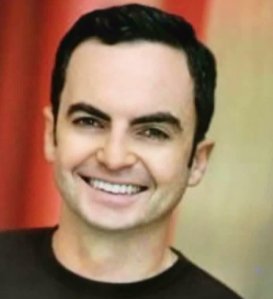California Attorney General Xavier Becerra on Friday touted his office’s prosecution of a man who “called in death threats” to a Los Angeles mosque.
“We will not turn a blind eye to violent threats,” Becerra said in a news release about the case against Mark Feigin. “An attack on one of us is an attack on all of us.”

The problem with Becerra’s statement is that it was issued two days after his prosecutors agreed to dismiss a felony hate crime charge against Feigin for making the threats in question.
“This is outrageous,” Feigin’s defense attorney, Caleb Mason, told CNN. “These statements are false and defamatory.”
Mason, a former federal prosecutor, said the attorney general’s office “dropped the charge because they don’t have a case — and they know they don’t have a case.”
The dustup over the language in the news release follows what appeared to be a resolution in the bitterly contested case in which Feigin was accused of threatening to kill members of the Islamic Center of Southern California in September 2016.
Prosecutors had persisted with a felony charge against him despite dwindling and contradictory evidence, as CNN reported in September. They did so despite significant evidence pointing to a second suspect who is the son of a Los Angeles Superior Court judge.
Prosecutors dropped the felony threat charge Wednesday in exchange for Feigin pleading no contest to the misdemeanor of making harassing electronic communications for anti-Muslim posts on the Islamic Center’s Facebook page — conduct he has always acknowledged.
According to Mason, Deputy Attorney General Natasha Howard read into the record that the misdemeanor charge “does not allege that Mr. Feigin made any calls to the Islamic Center or any of its employees” and that Feigin denies having done so.
Feigin also pleaded no contest to dissuading a witness for sending messages to a police lieutenant he accuses of falsely stating that he confessed to her.
The deal was struck after a judge agreed to a defense request to review the personnel file of the police lieutenant who said Feigin had spontaneously confessed to her. Mason had argued in court papers that he believed the lieutenant had previously been punished for dishonesty. He asked the judge to review her personnel file and turn over any relevant material that might be used to impeach her at trial. It is unclear what, if any, such material existed. The lieutenant could not immediately be reached for comment.
Feigin had been facing the prospect of years in prison if convicted of the felony threat charge. His plea deal calls for him to receive two years of probation, Mason said.

Feigin, a Realtor and part-time Uber driver, was arrested at gunpoint in October 2016. Police held a news conference a few days later at which they displayed weapons and ammunition — all of it legal, as it turned out — seized from his home in suburban Los Angeles.
Police said at the time that Feigin was responsible for leaving a hate-filled voicemail at the center September 19 and then making the threat call a day later. In both cases, the caller used the phrase “Muslim rats.”
Feigin acknowledged having harsh — some would say hateful — opinions. He called Muslims “filthy” in one of his Facebook posts and said they have no place in Western civilization. But Feigin insists he’s never crossed the line from opinion to threat.
Police later determined from phone records and a subsequent interview that the voicemail was left by a man named Michael Slawson, the judge’s son. Slawson, police would later learn, had made numerous calls to various mosques expressing his dislike of Islam. The Islamic center employee who answered the phone when the threat call was made has made contradictory statements regarding the identity of the caller.
He has told police he recognized the voice as the same person who left the voicemail a day earlier — now known to be Slawson. He has also told police he thought Feigin’s voice sounded the same as the threatening caller’s.
Slawson has not been accused of any crime. Both he and his attorney, Dominic J. Trutanich, declined comment earlier this week. Slawson’s father also declined to discuss the matter when contacted by CNN in September, saying it was “a family matter.”
Becerra’s office issued the news release following questions from CNN about the plea deal.
Neither Howard nor the press deputy, Tania Mercado, addressed questions about discrepancies between the court proceeding and the news release.
Feigin said he has spent a year of his life and about $200,000 fighting the charges. He said he was stunned to read the attorney general’s release after what he thought was a degree of vindication in court.
“The truth just doesn’t matter,” he said.
Editor’s note: A previous version of the story had information attributed to the news release from the state Attorney General’s Office. This post has been updated.












